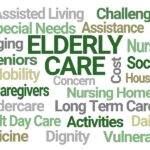Category Archives: Medicaid

Long-Term Care Planning In Massachusetts: What Is A Medicaid Spend Down?
Long term care costs are almost unfathomably expensive—and they continue to rise. According to data from SeniorLiving, the average monthly cost of a private room in a nursing home in Massachusetts is now an astonishing $13,535. While this is a state average, in our area, private pay rate for skilled care can exceed $16,000… Read More »

Who Qualifies For Medicaid?
There is much confusion about what services are provided or covered under Medicare versus Medicaid and how to qualify for Medicaid, which is called MassHealth in Massachusetts. While Medicare is an entitlement program, Medicaid is a welfare program that people can apply for with the help of a skilled attorney. Do you have questions… Read More »

Protect Your Estate from Nursing Home Costs
Nursing home care is expensive, costing between $12, 000 to $20, 000 per month, so most seniors should do all they can to prepare for this possibility. According to a recent article from the Times Herald-Record, “Elder Law Power of Attorney can save assets that would go to nursing home costs, ” this is… Read More »

How to Plan for Spouse’s Medicaid
Medicaid eligibility, assuming that you require long term care and have satisfied the medical eligibility requirements , is essentially a two-prong test or analysis of assets and income. That is, there are restrictions on the types of resources that you can have when you apply for Medicaid, specifically with regard to assets, if you… Read More »

How Does Family Pay for Parents’ Care?
Women 50+ who leave the workforce to care for a parent forfeit an average of nearly $325, 000 in wages, future Social Security benefits and retirement assets. Reducing their hours or leaving a job may mean buying health insurance, while also paying for caregiving-related expenses—like medications and gas for driving their parent to doctors…. Read More »

Ten Organizations that Provide Resources for Seniors Who Live Independently
America’s aging population is becoming comprised heavily of tech-savvy baby boomers. By 2030 all boomers will have hit 65 years of age, accounting for 18 percent of the US population. This demographic is driving significant and lasting challenges as 10, 000 baby boomers turn 65 every day. Aging in place is a significant trend… Read More »

Affordable Long-term Care in the US is an Urgent Priority
The challenges ahead are many as AARP reports that the population age 85 plus, the most likely to need long-term care, will more than triple between 2015 and 2050. Elected leaders must rethink institutional care and its affordability and make improvements while creating innovative long-term care options for those Americans who are aging in… Read More »

Senior Taxes, Money, and Retirement in a Biden Administration
The advent of a Biden Administration could bring significant changes to the current landscape for older Americans. Biden has outlined what he would like to accomplish for older Americans, and this post is intended to summarize some of those plans. Social Security benefits may become secure again. The Trump proposed payroll tax cut and… Read More »

Know Your Parents’ Aging Strategies Before a Medical Crisis Hits
Many adult children in the US live far away from their parents. Managing aging parents or in-law medical events can be a serious challenge without proper preparation and understanding of what your parents’ strategy may or may not be, no matter where you live. Do you know what legal documentation your parents have in… Read More »

What’s the Difference Between Nursing Homes and Assisted Living?
US News & World Report’s recent article entitled “Nursing Homes vs. Assisted Living” explains that a big question is determining what type of facility is the best fit. According to the National Institute on Aging (NIA), long-term care residences include: Assisted Living Facilities Nursing Homes Board and Care Homes; and Continuing Care Retirement Communities…. Read More »
